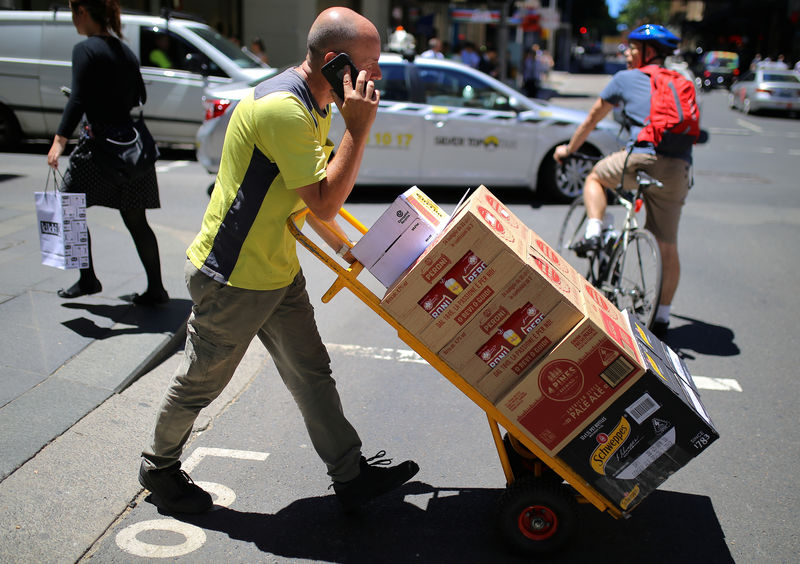Investing.com-- Australia’s jobs market grew less than expected in September, while the participation rate also unexpectedly fell as the labor market now appeared to be cooling as the effects of higher interest rates were baked into the economy.
The total number of employed people grew by 6,700 in September, data from the Australian Bureau of Statistics (ABS) showed on Thursday. The reading was much weaker than expectations for growth of 18,000 people and the nearly 65,000 jump seen in the prior month.
The participation rate unexpectedly fell to 66.7% from a record-high 67% in the prior month.
The reading comes in the wake of recent data that showed job vacancies fell slightly in August, with Thursday’s reading suggesting that the trend extended into September. A dip in vacancies indicates some cooling in Australia’s red-hot labor market.
But average employment over the past two months still remained in line with growth seen over the past year, indicating that despite a softer reading in September, labor conditions remained tight.
“The growth in employment has gradually slowed, however the employment-to-population ratio and participation rates are still close to their recent record highs. These still point to a tight labor market,” Kate Lamb, ABS head of labour statistics, said in a note.
But the labor market may be now cooling as high interest rates weigh on economic activity, limiting the pace at which companies can hire new workers. The Reserve Bank of Australia (RBA) had specifically targeted some cooling in the labor market with its barrage of interest rate hikes over the past year, as it sought to tame overheated inflation.
Australia’s unemployment rate unexpectedly fell to 3.6% in September from 3.7% in the prior month. But ABS officials attributed the change to a higher number of people moving from being unemployed to out of the labor force.
The Australian dollar fell 0.3% after the reading, given that any further cooling in the labor market gives the RBA less impetus to hike interest rates. The bank has kept rates on hold since May.
